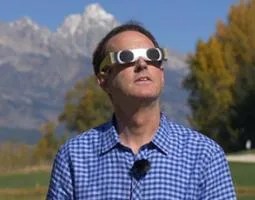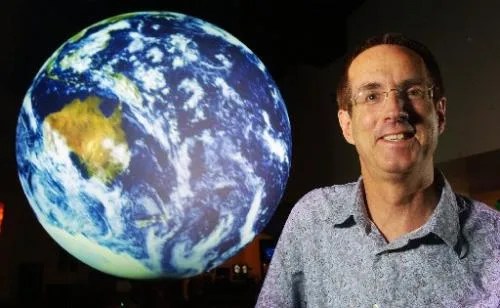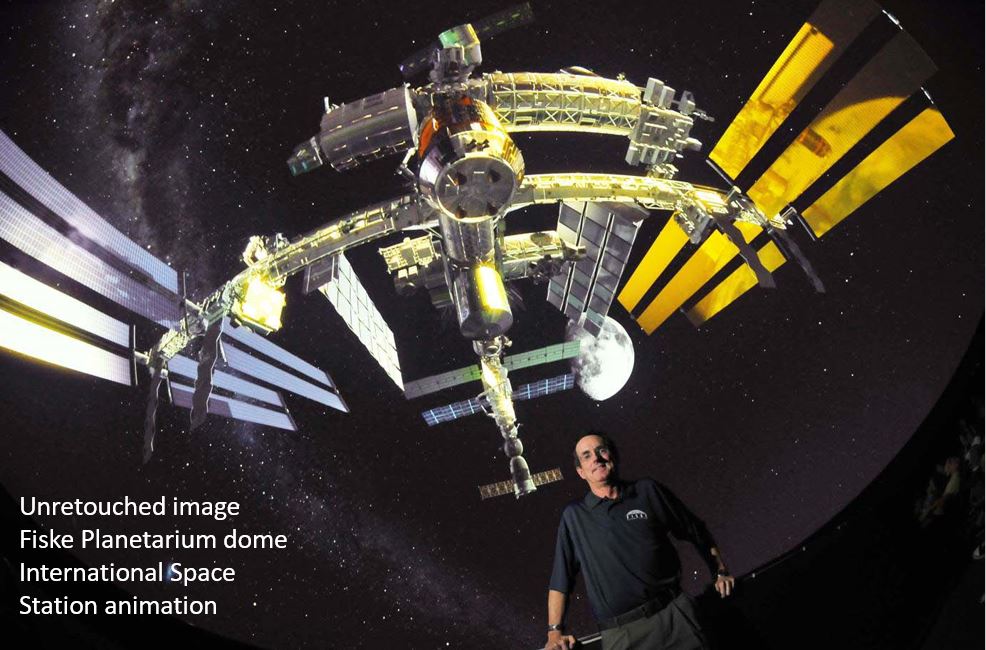
Dr. Douglas Duncan
Astronomer
As an astronomer at the University of Colorado, Dr. Douglas Duncan directs Fiske Planetarium, the most advanced planetarium in the US. Duncan earned degrees at Caltech and the Univ. of California. He was part of the project that first found sunspot cycles on other stars. It is the sun’s activity – sunspots and the solar wind – that causes the northern lights. Subsequently he joined the staff of the Hubble Space Telescope. In 1992 he accepted a joint appointment at the University of Chicago and the Adler Planetarium, beginning a trend of modernization of planetariums which has spread to New York, Denver, Los Angeles, and now Boulder.

Duncan is well known as a popularizer of astronomy. From 1997-2002 he did science commentary on the Chicago Public Radio station WBEZ. He has appeared on television programs such as the History Channel and BBC Horizon. In 2011 he received the prestigious Richard Emmons award presented to the “Outstanding Astronomy Teacher in the US.”
Dr. Duncan is the author of “Clickers in the Classroom,” a guide to the powerful new technology that enables teachers to know what all of their students are thinking – not just the ones that raise their hands. He has served as National Education Coordinator for the American Astronomical Society, representing the 7000 professional astronomers in the US and leading efforts for better teaching and public communication for astronomers throughout the country. Duncan has authored over 50 refereed publications and his work has been funded by the National Science Foundation, NASA, the National Oceanographic and Atmospheric Administration, the Smithsonian, and National Geographic. His most recent work is on the correlation between student texting and grades.

Visits to the Griffith Observatory when I was young. Then, Summer Science Program, which has offered teens an inspiring immersion into hands-on experimental science since 1959. It is the oldest program in the U.S. for high school students interested in science and it put my career in high gear.
Science Through Shadows. I have been to 12 solar eclipses and love to share the excitement and knowledge how to safely see this event you will remember your whole life!
I've had four careers!
- With the research group at Mt. Wilson Observatory, where we discovered sunspot cycles on other stars and the rotation of solar-type stars, in the 1980s.
- On the staff of the Hubble Space Telescope. I studied the production of the elements that happened shortly after the Big Bang.
- At the Adler Planetarium I helped start a trend of remodeling planetariums that spread from Chicago to NY, LA, Denver….
- At the University of Colorado I oversaw the remodeling of Fiske Planetarium to have the most advanced sky in the US and to, with NASA support, produce features for other planetariums. I also do science education research. I wrote the first book in the US on how to teach with student response systems, also called "clickers."
Follow your passion. Find others to share it. Challenge yourself!
The scene in "2001: A Space Odyssey" at the start, where the bone tool used by one ape to kill another transforms into a space station. We use our tools for both good and ill. The best science storytelling involves facts, curiosity, discovery, and emotion. I consider that scene to be the most imaginative and evocative in movie history.
For day to day use, my favorite is PhET, which provides fun, free, interactive, research-based science and mathematics simulations.
Scientist astronauts. Dr. Anthony Fauci. Several of my best teachers.
I've been to the North Pole, and to Mt. Everest Base Camp. I'm a cyclist and a music lover. I was the youngest planetarium presenter in the history of Griffith Observatory. The peak of my career came in 1968, when I took part in the march on NBC studios that saved "Star Trek" from being cancelled.
I fell in love with calculus when I saw what it could do. Compute the orbits of planets?! I loved the chance to do that at the Summer Science Program.
